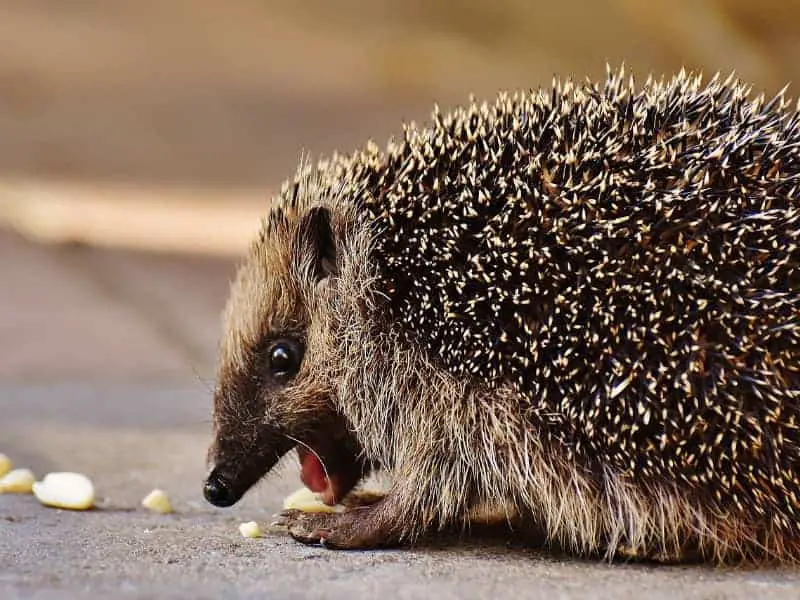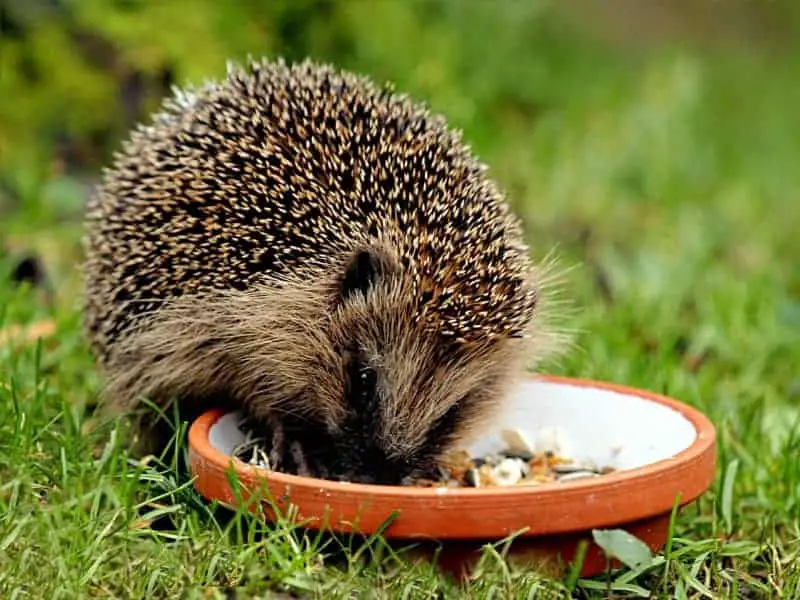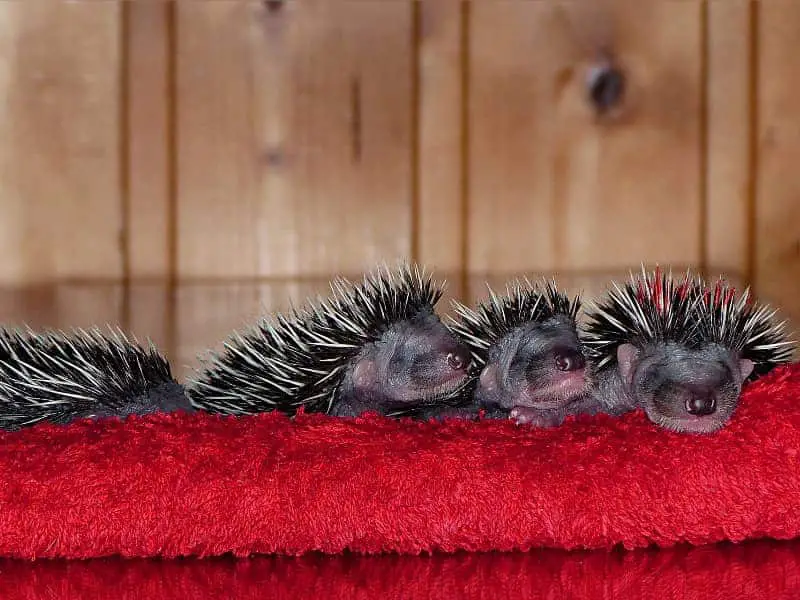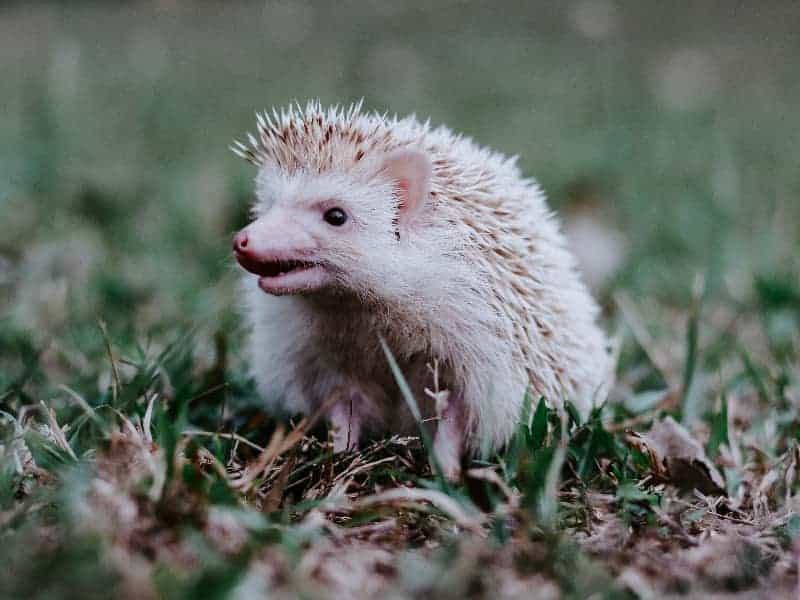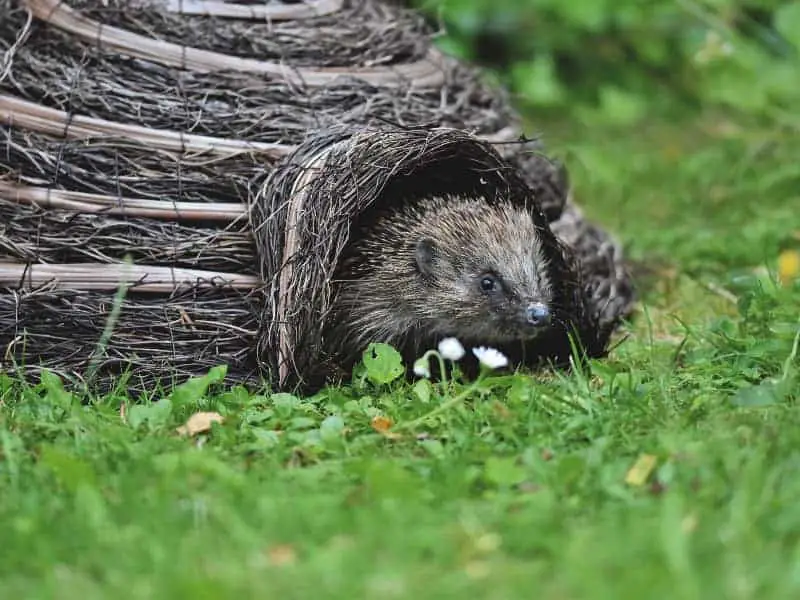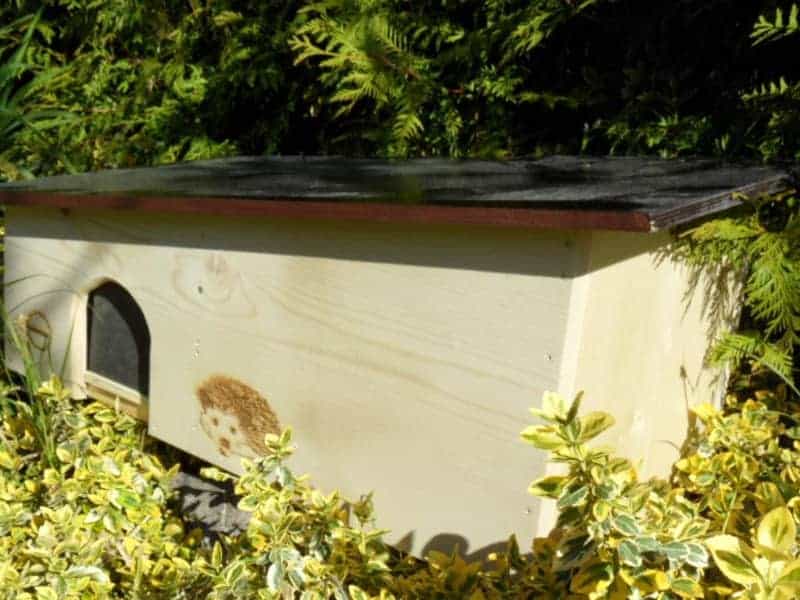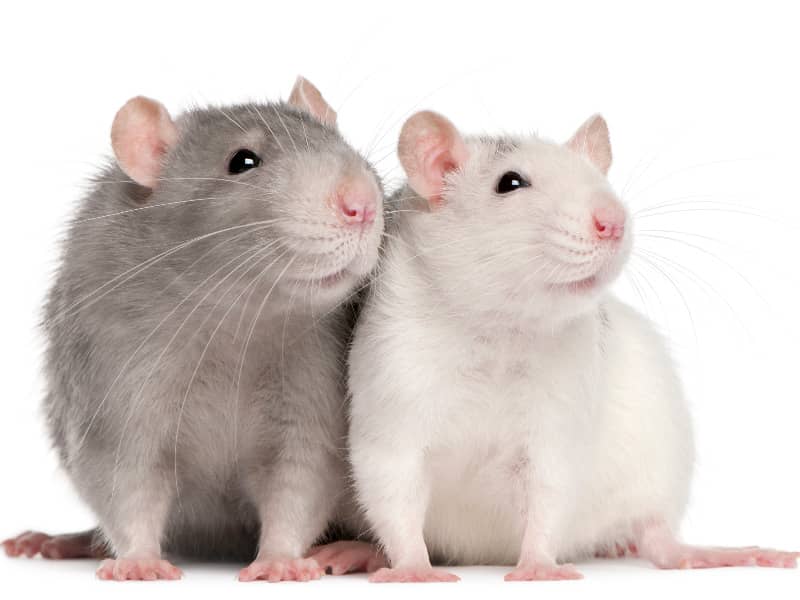
Do hedgehogs eat rats?
The question hedgehogs eat rats may seem curious at first glance. But it touches on a variety of topics, from the biology of the two species to everyday encounters in our gardens. This introduction provides an overview and clarifies why it is interesting to study this topic.
Why the topic: "Do hedgehogs eat rats?", is interesting
The interest in the relationship between hedgehogs and rats is more than just a curious question. It touches on the fundamentals of ecology, animal behavior, and the coexistence of different species in the same habitats. We often hear of cases where hedgehogs and rats appear near human settlements. This raises questions about how they interact with each other in terms of food and habitat. In doing so, the answers could have practical consequences for people who either want to encourage hedgehogs in their gardens or keep rats away.
A deeper understanding of the feeding habits and social behavior of these two mammals not only offers fascinating insights into their biology, but can also help facilitate more harmonious coexistence in our gardens and parks.
Basic diet of hedgehogs
Hedgehogs are fascinating animals that feed mainly on insects and worms. But what does a hedgehog's diet look like in detail, and does it vary depending on the season? This section sheds light on these questions.
What hedgehogs usually eat
Hedgehogs are generally omnivorous with a preference for insects. Their diet includes a range of food sources, from beetles and snails to fruits and plants. In the wild, hedgehogs also eat worms, spiders and other small animals. This diversity ensures that they receive a balanced diet rich in protein and other nutrients.
While hedgehogs are flexible in their diet, it is unusual to unlikely to observe them consuming larger animals, such as rats. It would be a significant departure from their usual diet and would require more energy and risk than is normally expended in foraging.
Seasonal changes in the diet of hedgehogs
A hedgehog's diet can vary depending on the season. In spring and summer, when temperatures rise and the food supply becomes more abundant, hedgehogs tend to eat a wider range of foods. This can range from insects and worms to various fruits and plants.
In the colder months, on the other hand, especially in winter when many hedgehogs hibernate, their diet naturally becomes more restricted. At this time, they are less active and expend less energy. Therefore, they are less dependent on seeking a diverse food source.
The seasonal changes in hedgehog diet and activity are an exciting aspect of their lives, highlighting their ability to adapt to different habitats.
Do hedgehogs eat rats? Facts and observations
This is probably the most burning question of this blog post. What happens when hedgehogs and rats meet? Are there documented cases or scientific studies that shed light on this interaction? This section attempts to shed some light on the subject.
Encounters between hedgehogs and rats
There is limited scientific literature on direct encounters between hedgehogs and rats. However, both field studies and personal observations mostly report a rather neutral to evasive attitude between the two animals. Hedgehogs, with their spiny bodies, are difficult "prey" for rats, while rats are usually too large and mobile to be considered food for hedgehogs.
Observational studies and reports from wildlife experts often state that hedgehogs and rats tend to ignore or avoid each other. Rats are predominantly nocturnal animals, while hedgehogs can be both diurnal and nocturnal. This reduces the likelihood of direct conflict over resources such as food.
Is it likely that a hedgehog will eat a rat?
After looking at existing cases and studies, we can say with a fair degree of certainty that it is unlikely that a hedgehog will eat a rat. The reason is simple: the energy expenditure and risk involved in trying to overpower a rat is disproportionate to the potential benefits. Rats are fast, agile animals that can defend themselves effectively.
A hedgehog takes the path of least resistance and focuses on easier-to-catch prey such as insects, worms, and smaller vertebrates. Therefore, the idea that a hedgehog eats a rat is rather unlikely and not supported by scientific observations or studies.
Conclusion: Do hedgehogs eat rats?
Over the course of this blog post, we have looked closely at the question of whether hedgehogs eat rats. Based on the hedgehogs' basic diet, seasonal changes in diet, documented encounters and scientific analysis, the answer is clear: it is extremely unlikely that a hedgehog will eat a rat.
There are many reasons for this. On the one hand, the energy expenditure and risk involved in trying to overpower a rat is too great for the hedgehog. On the other hand, rats are fast and agile animals that can defend themselves effectively. Otherwise, both hedgehogs and rats usually show a neutral to evasive attitude towards each other when they meet in the wild or in human settlements.
This behavior reflects the natural survival strategies and feeding habits of the two species. While hedgehogs focus on a wide range of foods, but mainly on smaller animals and insects, rats are omnivores that use a variety of food sources.
The complex relationship between these two species is an exciting topic that touches on many aspects of biology, ecology and behavior. And the question whether hedgehogs eat rats can be answered with a clear "no".
Author

-
Garden animal - A life with nature
Welcome to my animal blog! My name is Dirk and I am happy to take you on my journey through the fascinating world of animals and gardening.
Born 54 years ago, I have had an insatiable curiosity for the animal world around me since childhood. Although I have moved professionally in other industries, my true passion has always been animals and nature. It is remarkable how a small garden has become such an important part of my life.
Many of my fondest memories are associated with the animals that share our home. Whether it's the curious squirrels that scurry across the trees in the morning, the colorful variety of birds that visit our feeders, or the busy bees and butterflies that pollinate our flowers, every moment with them is invaluable to me.
This blog is my contribution to share my experiences, discoveries and insights with like-minded people. Here I will share stories of unforgettable encounters with animals, give tips on gardening and creating wildlife-friendly habitats, and take you on my journeys through nature.
Thank you so much for being here!
Cordial,
Dirk aka garden animal
Last posts
- 27. February 2024PetsVeganes Hundefutter – Grün und Gesund?
- 18. January 2024ChickensOregano für Hühner
- November 27, 2023HamsterDiurnal hamsters
- November 24, 2023HamsterHamster hammock

